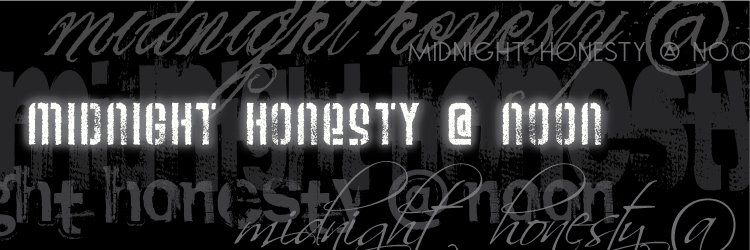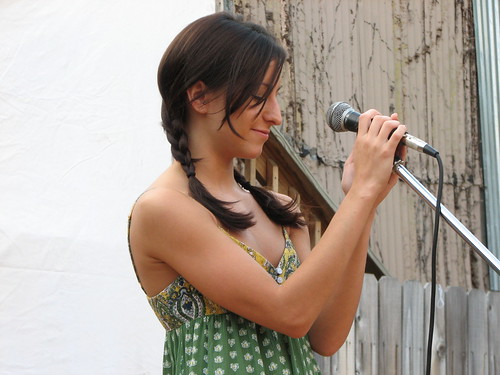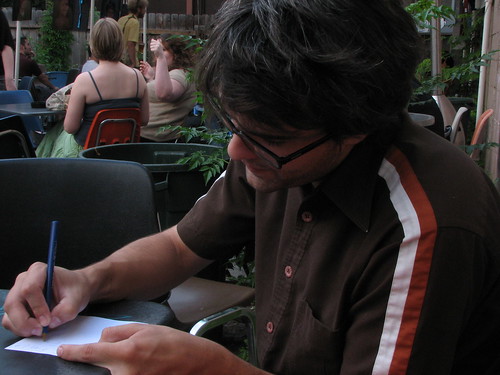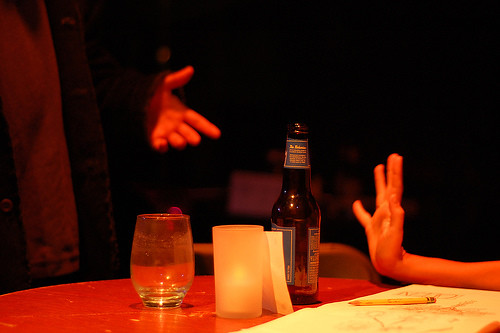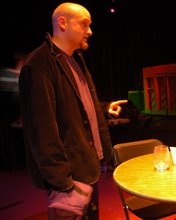Doris Egan (writer - House MD) on the WGA strike:
(She's not making money on a LiveJournal so I have reprinted it here)
There was a time in this world when it seemed that anyone with literary talent could make a living, if they were willing to take the risk. Louisa May Alcott supported herself and her family writing thrillers. A woman could be widowed with children, and rather than throw herself on the mercy of unpleasant relatives, she could say, "I will make my living by my pen!" -- and proceed to do so, maybe with a little sewing on the side. These writers were fulfilling a deep and endless need; the appetite for story is written into our genetic code.
As late as the 1960s and 1970s, this was all still true. Here's one of my favorite photographs, by Berenice Abbott: a newsstand in 1935.
http://www.nypl.org/research/chss/spe/art/photo/abbottex/cny0198.html
You can't see it on your screen, but the actual photograph is so sharp that you can read the titles of the magazines. (A digital reproduction hangs in my dining room, and allow me to recommend the New York Public Library's archive.) This is the glorious landscape of pulp fiction, all the guilty and not-so-guilty pleasures of story laid out for the hedonist to wander through. Not just one or two magazines of detective stories, oh no -- here are Master Detective, Official Detective, True Detective, Famous Detective, Detective Tales. Here are Colliers and The Saturday Evening Post. Here are Argosy, Doc Savage, Weird Tales. Here is Battle and Flying Aces; Railroad Stories; Western Stories, West, Cowboy Stories, Cowboy Life, Triple-X Western. An endless array of love stories, horror stories, sports stories, all to be devoured and enjoyed by a story-hungry public who would only be back next month for more.
Ah, Thrilling Wonder and Planet Stories, that gave us Leigh Brackett -- a woman who, incidentally, also wrote the screenplays for The Empire Strikes Back, The Big Sleep, Rio Bravo, and The Long Goodbye. And here we come to the issue at hand, for by the time The Empire Strikes Back came out, the pulps were mostly a memory.
What happened to them? In my opinion, television happened. That voracious appetite for story could be satisfied by clicking on a button. Movies helped, but television could give you a fix every single day. The box couldn't come near to the full world-immersion of a novel -- a reason I think the novel has held on -- but over the years, the novel audience has eroded, too. There've been plenty of theories about this: a decline in literacy, audience fragmentation, too many book choices for a particular market. People unfamiliar with publishing realities will point to Stephen King or J.K. Rowling, as though somehow every writer with a book must be sharing the pie. Well, they aren't. The vast majority can't make a living at all, and have to stuff their writing into the spare hours they divert from their families and their day jobs -- and we all know how much time that comes down to.
They do it for love. But you know what? There's nothing wrong with getting paid. Back when FDR started the WPA and wanted to pay writers to work for the agency, people objected. They were writers, for godsake. That's not real work, like farming or laboring. "They're writers, but they still have to eat," was the reply.
There is one place left in the world where some writers can make a decent living, some of the time. That place is Hollywood, California, and the Hollywoodesque enclaves of film and TV around the world.
It hasn't always been easy. Bob Carroll and Madelyn Pugh wrote the first four seasons of I Love Lucy. As you read this, that show is playing somewhere in the world, but Carroll and Pugh never saw a dime of residuals from the huge amount of money their scripts made. That money still rains down today on a huge conglomerate, where no one in the executive offices has any connection whatsoever with the series, let alone contributed to its success. It's simply free money for them, forever and ever. This is one reason I would go back in a time machine and stop Hollywood writers from giving up copyright, for with copyright went respect and fair treatment; but you can never wrestle from the hands of a corporation that which they now believe is theirs. Carroll kidded an interviewer, before he died at the age of 87: "If I had residuals, would I be here?" But this was a business where Jack Benny didn't give his writers credits on his show, because it was believed the audience thought actors and comedians made everything up on the spot. It was a business where, one ancient director told me, when a movie stopped for the night, the crew could be locked up in a barn till daylight.
A lot of people went through hard times getting the WGA and IATSE and the other unions together, and putting an end to horror stories like that. The horror stories now are coming from a different angle: from the age of giant conglomerates. The AMPTP is often referred to as "the producers," but they are not. They are huge corporations which own many different things. And the executives the Guild is striking against are not the executives we work with on films and TV shows. This all basically comes down to six CEOs and a corporate culture that seeks to maximize profit as though those profits did not emanate from people actually making things. There is a big disconnect between the people doing the making and the ones keeping the books, and there's little incentive to run things reasonably in a world where the salary of a single CEO surpasses the entire amount of DVD residuals paid to the entire Guild. And where none of these companies will open their books so their accounting can be examined.
The companies are both answerable to no one and wildly bloated; it's not unusual, in launching a TV show, to get notes from twelve or more executives, some of which are mutually contradictory, but all of which must be obeyed. (There was a day when notes were few, and left to the discretion of the executive producer. That day is no more.) The result, as I have personally witnessed, is often incoherence. Then too, when twelve or more people read something, anything non-generic will "bump" one of them. This is a simple statistical fact, not a reflection on the executives involved -- give a script to any twelve people, including other writers, and the results will be the same. It won't be the same person bumped each time; but by the time your script is ready to shoot, it will have been smoothed down, like a rock under a waterfall, till all that's left is what's expected. (And yet, it's still incoherent. This is not an easy result to achieve: it takes the work of many people.) I'm lucky in that I work on a show that's up and running, whose executives go out of their way to give us space to create, and trust that our mistakes will mostly be small ones. But after ten years in this business, I can tell you that it's by no means something you can count on. The structure of this contraption is just too unwieldy.
But let's get back to the money. If you've been reading this journal, you know that people in television are among the hardest working I've ever met, with the longest hours. And the rewards, both monetary and creative, will tease you along and then slap you in the face when you least expect it. Writers have fat years and lean years; a great number are unemployed; and of those that are not, the odds on holding a job plummet with every middle-aged birthday and wrinkle (more in comedy than drama, but still). Again, people unfamiliar with the industry can point to Aaron Sorkin and the more successful showrunners, and say they seem to be well-compensated. They are. They are exceptions.
Even I am an exception. I'm not a showrunner, but I'm a writer-producer on a successful show. I'm incredibly fortunate. If you clear away the smoke of the ten percent I pay to an agent, the ten percent to a manager, the occasional five percent to a lawyer, and an amazing number of other fees, I still make a comfortable, upper-middle-class living, vaguely comparable to what an officer of a bank might make. (I can make that comparison because I once worked in a bank.) And to get this for writing. My god. Granted, none of this says I'll have any income at all next year, but this year? I'm blessed. Many, many other writers are not.
Here's something else you should know: writers are not famous for their self-esteem. I'm sure there must be some out there with a sense of entitlement, but I haven't met them. I have never heard a discussion of salary, on any show, that didn't have writers pointing to average compensation across the country and saying we were lucky people, at least this year. (Just as I've never heard writers discuss actors and casting without sympathy for what the actors go through.) Writers are very, very aware of what the world is like -- what's more, we tend to be vaguely grateful to be paid at all, because it's for writing, and we've been beaten down by the world to think that isn't a serious and valuable thing. (By the way, I'm not at all sure this understanding goes up to the CEO's office; how can it, when that CEO can be handed sixty million dollars just for quitting? Someday I must tell you the story of the famous exec who said, "Why not make this character middle-class? Let's say he makes $300,000 a year -- " and the writers all stared at him.)
I wish, frankly, that writers had more self-esteem. We are just not people who stalk into the corporate offices and make demands. That famous deal the Guild took, whereby we agreed to let eighty percent of video sales go with no compensation at all, and only get paid for the remaining twenty? Typical. In a contract negotiation only a few years ago, the Guild got a provision whereby the writer of a movie would be invited to the screening. Yes. I am not making this up. This was a victory. I remember a showrunner I worked with a few years ago joking about our inability to stand up for ourselves: "Uh, we'd like to, maybe, wear clothes and -- " "No." "…Okay."
(Briefly, if you haven't heard by now: back when movies were first sold on video, the AMPTP said, "It's new! It's wicked new! It could cost all kinds of money to make these crazy things! So you guys wouldn't mind taking an 80 percent pay cut while we grow the business and see if there's money to be made, right?" So we did. As one older writer explained it to me, we wanted to give the fledgling market a chance -- "and of course we found it didn't cost anything at all to make the videos." But the 80 percent cut remained; and when DVDs came in, the AMPTP said, "Same as videos, right?" They then stomped all over us with big boots during the strike of '88, and here we are now: DVDs are the same as videos. You may be wondering how this famous "four cents per DVD" shakes down, so let me tell you: for a long, long time I never actually met a writer who'd gotten any money from video or DVD -- that's how ghostly-thin a slice we were served at table.)
This year, when I first heard that we were only asking for eight cents per DVD, I was actually disgusted. "It's twice as much," someone pointed out. I thought, yes, but twice zero is still zero. And yet we came in, hat in hand, asking for this, and were not only refused but told the conglomerates would like to remove all residuals of any kind. "Why are we always so damned reasonable?" I asked. "Why aren't we ever the ones to posture and make outrageous demands?" "We're writers," I was told. And then we actually removed that request for four-more-cents, in return (we thought) for opening up a discussion of new media. Because the AMPTP had said, "New media -- it's too new! We might not make any money! Let's study it for three years." "And pay us that lousy four cents, meanwhile?" "No, we were thinking we'd pay you nothing."
And by now, we all know how that turned out. One writer said, more or less, that he'd assumed the AMPTP would offer us another unfair, terrible deal, and we'd fold like the pathetic house of cards we were and take that offer. It hadn't crossed his mind they'd offer nothing.
Goddammit. I'd like a world in which good novelists, short story writers, and scriptwriters could all make a living, and where none of them were apologetic about it. Where writing was a fine, beautiful, and necessary thing, and we didn't assume we're the only ones who can see that. Where we would hold our heads up and say yes, we are not unworthy. We deserve compensation for our work, even if we're not farmers or firefighters.
…I seem to have gotten some of that world. It's a scary place, but I can't be entirely sorry about it.
This strike will not help me that much. By now everyone knows that new media is the point, and I came to Hollywood in middle age; I'm unlikely to see much compensation from new media before my career ends. Why am I doing this? Because other people did it for me. I'm 4F for this war, so they've had me working in Strike HQ, answering phones. (Larry Gelbart was on the phone next to me. Larry Gelbart. Such are the advantages of bad feet -- they put you where you meet legends.)
Anyway. As it happens, Carroll and Pugh weren't the only team to write for I Love Lucy. Schiller and Weiskopf did as well. Weiskopf is dead, but on the first day of the strike, Bob Schiller walked into headquarters -- a little slowly, leaning on his cane -- to ask if there were anything he could do.
